Reiki Healing
What is Reiki?
Reiki treats the whole person including body, emotions, mind and spirit creating many beneficial effects that include relaxation and feelings of peace, security and wellbeing.
Taken from Reiki.Org
Reiki is a Japanese technique for stress reduction and relaxation that also promotes healing. It is administered by “laying on hands” and is based on the idea that an unseen “life force energy” flows through us and is what causes us to be alive. If one’s “life force energy” is low, then we are more likely to get sick or feel stress, and if it is high, we are more capable of being happy and healthy.
The word Reiki is made of two Japanese words – Rei which means “God’s Wisdom or the Higher Power” and Ki which is “life force energy”. So Reiki is actually “spiritually guided life force energy.”
A treatment feels like a wonderful glowing radiance that flows through and around you. Reiki treats the whole person including body, emotions, mind and spirit creating many beneficial effects that include relaxation and feelings of peace, security and wellbeing. Many have reported miraculous results.
Reiki is a simple, natural and safe method of spiritual healing and self-improvement that everyone can use. It has been effective in helping virtually every known illness and malady and always creates a beneficial effect. It also works in conjunction with all other medical or therapeutic techniques to relieve side effects and promote recovery.
An amazingly simple technique to learn, the ability to use Reiki is not taught in the usual sense, but is transferred to the student during a Reiki class. This ability is passed on during an “attunement” given by a Reiki master and allows the student to tap into an unlimited supply of “life force energy” to improve one’s health and enhance the quality of life.
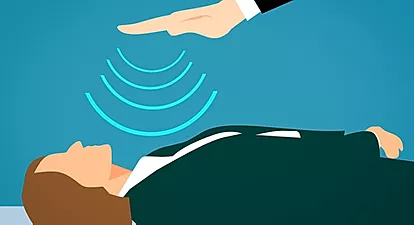
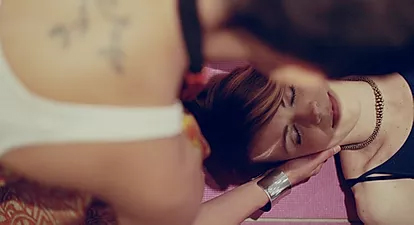
Its use is not dependent on one’s intellectual capacity or spiritual development and therefore is available to everyone. It has been successfully taught to thousands of people of all ages and backgrounds.
While Reiki is spiritual in nature, it is not a religion. It has no dogma, and there is nothing you must believe in order to learn and use Reiki. In fact, Reiki is not dependent on belief at all and will work whether you believe in it or not. Because Reiki comes from God, many people find that using Reiki puts them more in touch with the experience of their religion rather than having only an intellectual concept of it.
While Reiki is not a religion, it is still important to live and act in a way that promotes harmony with others. Mikao Usui, the founder of the Reiki system of natural healing, recommended that one practice certain simple ethical ideals to promote peace and harmony, which are nearly universal across all cultures.
Benefits of Receiving Reiki
Reiki is a simple process but has profound effects
As a type of energy healing, it aims to help the flow of energy and remove blocks in a similar way to acupunture or acupressure. Improving the flow of energy around the body can enable relaxation, reduce pain, speed healing, and reduce other symptoms of illness.
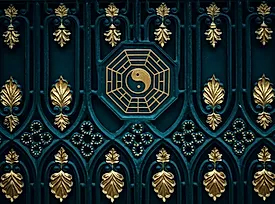
Balance and harmony
Reiki works directly on restoring balance on all levels and works directly on the problem and condition instead of just masking or relieving symptoms.
When we chat about balance, we mean mental and emotional balance, left and right brain, masculine and feminine, labelling things as good or bad, positive or negative etc.
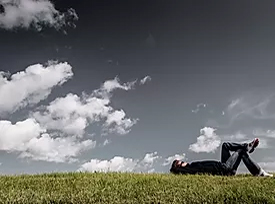
Deep relaxation and release stress
Regular Reiki treatments can bring about a calmer and more peaceful state of being, in which a person is better able to cope with everyday stress. Clients have reported feeling more clear, peaceful, relaxed and lighter in themselves.
Reiki provides a space where you can be more aware of what is going on inside your body and mind. To learn to listen to your own body and make wise decisions regarding your well-being from this place. Being more present means you are in your body, which helps you to access even more that inner knowing and wisdom that we all have!
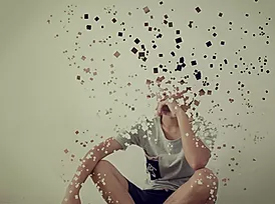
Dissolve energy blocks
Reiki works directly on restoring balance on all levels and works directly on the problem and condition instead of just masking or relieving symptoms.
When we chat about balance, we mean mental and emotional balance, left and right brain, masculine and feminine, labelling things as good or bad, positive or negative etc.

Self-cleansing and supports immune system
We spend so much time in stress-reactive fight/flight phase that it becomes our ‘norm’ and our bodies literally forget how to return to balance. Reiki reminds our bodies how to shift into parasympathetic nervous system (rest / digest) self-healing mode.
Rest/digest doesn’t mean you have to stop being active and productive or ‘do nothing’. It allows you to sleep better and digest better which is important to maintaining health and vitality. The more you are in this space, the more you can be active and productive without being stressed, exhausted or burntout.
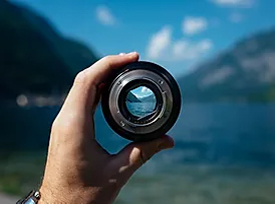
Clears the mind and improves focus
Reiki can support you in staying centered in the present moment rather than getting caught up in regrets about the past or anxieties about the future. It can strengthen your ability to accept and work with the way events are unfolding even when they don’t follow your desires or timetable. You begin to react to situations, people and yourself in a supportive way rather than acting our of habit.
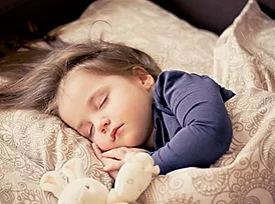
Better sleep
The number one outcome of receiving a Reiki session is relaxation. When we’re relaxed, we sleep better, our bodies heal better, we think more clearly, and we relate to each other more genuinely. Often clients will experience deep relaxation during their Reiki session and sometimes a deep sleep during the session as well.
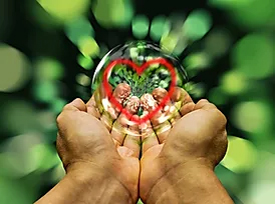
Self-healing
Reiki healing quickly returns you to your natural state, or at least gets your body moving in the right direction.
That means your breathing, heart rate and blood pressure improve. Breathing deeper and easier is one of the first things to happen during a self-practice or treatment received from someone else. When we breath better, our minds naturally settle. Science supports that.
As your respiration deepers your body moves into parasympathetic nervous system (PNS) dominance i.e. the rest/digest phase. Your body was made to function primarily in the rest/digest phase rather than the more commonly experienced fight/flight phase.
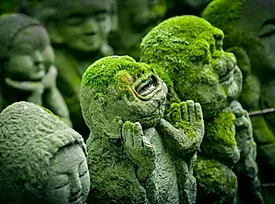
Pain relief
On the outside looking in, a Reiki treatment might appear to be merely a sequence of hand placements, it works to restore balance on the deepest possible level. It encourages your system to improve your body’s vital functions (breathing, digesting and sleeping) so your physical systems function optimally.
On the physical level, Reiki helps to relieve pain from migraine, arthritis, sciatica ~ just to name a few. It also helps with symptoms of asthma, chronic fatigue, menopausal symptoms, and insomnia.

Spiritual growth and emotional cleansing
You do not need to be into spirituality to enjoy the benefits of reiki. Yet, for many they receive reiki treatments to support themselves through their self healing journey i.e. spiritual growth / personal development.
Reiki addresses the whole person, rather than targeting individual symptoms. It can create profound, often subtle shifts from deep within your own being. What does that look like? Guidance about what to do around difficult situations can come more easily. Or it may inspire a change in attitude or belief about your situation. Suddenly, you see your condition from a fresh perspective and are able to deal with it in a more positive way. Or it might direct you to the right kind of action needed which is guided from within.
Scientific Validation
Taken from reiki.org
A research study at Hartford Hospital in Hartford, Connecticut indicates that Reiki improved patient sleep by 86 percent, reduced pain by 78 percent, reduced nausea by 80 percent, and reduced anxiety during pregnancy by 94 percent.
In 2009, The Center for Reiki Research completed the Touchstone Project, which summarized Reiki studies published in peer-reviewed journals. The 25 studies examined were further evaluated to determine the effectiveness of Reiki. The conclusion states: “Overall, based on the summaries of those studies that were rated according to scientific rigor as “Very Good” or “Excellent” by at least one reviewer and were not rated as weak by any reviewer, 83 percent show moderate to strong evidence in support of Reiki as a therapeutic modality.”
Reiki in the clinical setting is on the rise
Taken from iarp.org
Reiki is increasingly finding its way into institutional settings, from hospitals to hospices, and the push appears to be coming from patients as well as clinical practitioners.
“More and more, patients are requesting care beyond what most consider to be traditional health services, and hospitals are responding to the needs of the communities they serve by offering these therapies,” according to researcher Sita Ananth of Health Forum, an affiliate of the American Hospital Association (AHA). “And hospitals are responding to the needs of the communities they serve by offering these therapies.”
Reiki is now one of the top three complementary in-patient therapies in U.S. hospitals, according to an AHA survey. Massage therapy takes first place, with 37% of hospital patients requesting it. Number two is music and art therapy at 25%, and a very close third is “healing touch therapies” at 25%, which included Reiki and Therapeutic Touch.
Why people with cancer use Reiki
Taken from cancerresearchuk.org
Some people with cancer may use reiki alongside their treatment, as a complementary therapy. Reiki practitioners say that it can:
- help you to feel deeply relaxed
- help you cope with difficult situations
- relieve emotional stress and tension
- help to improve overall wellbeing
Some people with cancer say they feel better after using therapies such as reiki. Studies show that this is often because a therapist spends time with the person, and touches them. After the rush and stress of hospitals and treatment, it can be very relaxing when someone gives you attention for an hour or more, in a calm setting. Reiki is sometimes used in palliative care, especially in hospices.
Some people say that reiki has helped to control side effects of their cancer treatments, such as pain, anxiety and sickness. They also say that it helps them cope better with their cancer and its treatment. But it’s important to bear in mind that while reiki may help you to cope with your symptoms or side effects, it is not able to treat your cancer.
Dr. Oz used Reiki for over 10 years
Taken from iarp.org
The highest profile advocate of complementary therapies, especially Reiki, continues to be Mehmet Oz, M.D., Professor and Vice Chairman of Surgery at Columbia University in New York City, Director of the Cardiovascular Institute, and Founder and Director for the Complementary Medicine Program at New York Presbyterian Hospital. Dr. Oz has used Reiki and Therapeutic Touch therapists in his cardiovascular surgeries for more than 10 years. And because he frequently talks about energy medicine on his television show, the general public as well as
healthcare professionals are hearing about the implications of these therapies from a credible Western medical source.
“We’re beginning now to understand things that we know in our hearts are true but we could never measure. As we get better at understanding how little we know about the body, we begin to realize that the next big frontier in medicine is energy medicine,” according to Dr. Oz.
Dr. Oz has conducted research on the effects of Reiki on his surgical patients with Julie Motz, RN, a Reiki-trained therapist, who assisted Dr. Oz during 11 open heart surgeries and heart transplants. These 11 patients had no post-operative depression, pain or leg weakness; no organ rejection (in transplants); a better functioning immune system, and a positive attitude toward healing.
